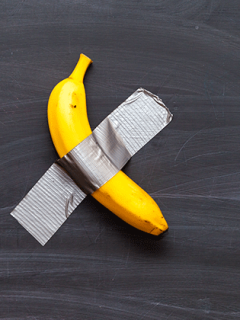Christmas is still the strongest sales period for most retailers. Year after year, spending on Christmas presents increases. Last year, the cash registers rang and exceeded the 100 billion euro sales mark in Germany for the first time. This is not least due to special offer days that make shopping attractive. Whether Black Friday, Cyber Monday or Singles’ Day – companies generate record sales on these days. This is because shopping fans promise themselves endless bargains and are waiting in the wings to get their credit cards glowing. Reason enough for every retailer to jump on the bandwagon, especially in e-commerce. Because on Black Friday alone, 3 billion euros in turnover are expected in the German retail sector. But where do the promotion days artificially created by retailers come from?
Black Friday
Black Friday is probably the best-known promotional day, which originally heralded the Christmas shopping season in the USA. For this reason, Black Friday falls on the Friday after Thanksgiving. Many Americans get the Friday as a bridge day from their employer or take time off to do their first Christmas shopping.
And no other company than Apple brought Black Friday to Germany. The cult brand doesn’t usually lower prices, but in 2006 for Black Friday there was a bargain sensation. Over the years, the campaign day was adopted by other suppliers and managed to establish itself. Even though Black Friday initially took place in retail, it has mostly established itself online in Germany.
Cyber Monday
In order to get a piece of the pie, e-commerce unceremoniously created the Cyber Monday campaign day, as a kind of online answer to Black Friday.
Cyber Monday is also strongly American and always takes place on the first Monday after Thanksgiving.
Thanks to American companies like Amazon, the campaign day is also extremely popular in Germany. Amazon takes the discount battle to the extreme with Cyber Week: from 25 November to 2 December, discounts on a wide variety of items are advertised to lure buyers. But other companies are also extending the campaign period, for example with Cyber Weekend, which covers the period from Black Friday to Cyber Monday.
Singles’ Day
Singles’ Day takes place annually on 11 November. In Germany, 11.11. is rather associated with the beginning of carnival. The name Singles’ Day is derived from the date, the 1 stands symbolically for single. Because of the date, it is also called Double 11.
Initially, Singles’ Day was celebrated in China: singles met to get to know other singles and celebrate exuberantly. It was Alibaba that turned it into a shopping event, and not just any shopping event, but the world’s top-selling shopping event. Last year, in China alone, Alibaba generated 27.3 billion euros on this day alone. In Germany, too, the promotion day is being used increasingly intensively by companies for discount campaigns.
6 tips for retailers: Prepare your online shop optimally for promotion days
Promotion days like Black Friday, Cyber Monday or Singles’ Day herald the start of Christmas business. And those who don’t buy anything to give away use the discounts to give themselves a present.
Three out of four Germans said last year that they wanted to shop on Black Friday. The potential to lure new customers into one’s own shop is particularly high, because as many as 58 percent keep an open mind about what they will buy and thus react impulsively to the offers. The preparation for promotion days should be included in the preparation for Christmas.
1. start as early as possible
As early as September and October, the first consumers start to find out about Black Friday deals, and the search volume peaks in November:
It is therefore worthwhile to inform customers and visitors to the online shop about upcoming promotions in good time.
2. planning campaigns
Campaigns are used to disseminate the offer. Depending on which target groups are to be reached, the measures are determined. Basics such as the creation of a landing page, channels, advertising media and budget are planned and implemented. It is important that tracking is implemented in order to measure the success of the measures and to optimise future campaigns accordingly.
3. prepare the online shop for the onslaught
When millions of people succumb to the shopping frenzy at the same time and place the offers in the shopping basket, this leads to an enormous load on the online shop. In any case, it should be tested in advance whether the shop can withstand the high number of users and whether the page loading time is correspondingly fast.
4. coordination with warehouse and parcel service provider
In order to handle the high number of orders, it is important to ensure sufficient personnel capacities in the warehouse and to Optimise order preparation. In any case, delivery times and capacities must be coordinated with the parcel delivery service and organised early on. In order for online shops to profit from increasing sales, parcel delivery services have to manage the equally increasing shipping volume. For the delivery staff, the weeks before Christmas are pure stress. In order to be able to manage the workload at all, thousands of employees are sought and hired. This is one reason why some parcel service providers charge a so-called peak surcharge.
5. keep an eye on competitors
If you keep an eye on your competitors’ activities, you can not only get inspiration for your own actions. In addition, market observation helps to evaluate one’s own action: Does the offer meet consumer expectations? Can the offer keep up with those of competitors?
6. at least one bestseller
In order to convince consumers to buy, at least one sales hit must be brought into focus and attract attention. This is the only way to generate sales through upselling and cross-selling. Both are sales techniques that work well in online shops.
With upselling, more expensive, newer or better products in the same category are suggested to the customer. Cross-selling aims at additional sales that match the selected product. When buying a camera, for example, a replacement battery or the matching leather case is suggested for purchase during the check-out process.
Are the promotion days worth it?
Enormous discounts, deep rebates, special offers… Paradise for bargain hunters. 38.2 per cent of Germans plan to spend up to €300 on Black Friday, 10.3 percent in the survey even say they plan to shop for over €1,000. So consumers are spending a lot of money!
Nevertheless, participation is controversial: shoppers deliberately wait for the discounted prices and deliberately do not shop before or after the promotion days, thus future sales could be lost. For this reason, consumers repeatedly stumble across supposed offers during such shopping events that, on closer inspection, are not offers at all. In the run-up increased pricesThe prices, which are then lowered again on the promotion days, create artificially generated offers. Those who take part in promotion days such as Black Friday should refrain from consumer deception, as this could lead to damage to their image.
However, if one considers how many new customers are addressed and, in the best case, won over in the long term, a lower margin is well worth it. And the mass of orders on such promotion days usually exceeds those on “normal” days by far.















